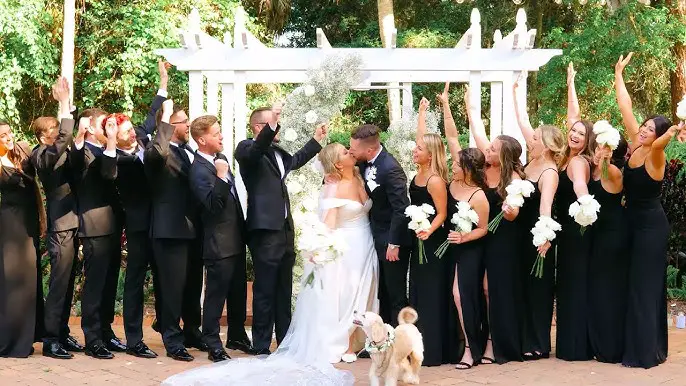The Invitation That Changed Everything
My name is Tessa, and at 25, I’m still learning how to navigate a world where childhood innocence can be shattered in an instant. Working as a marketing coordinator, I’ve become adept at managing campaigns and strategies, but nothing prepared me for the campaign my 12-year-old brother Owen would orchestrate on our father’s wedding day.
It began with a gold-embossed envelope—an invitation neither of us expected. After years of silence, after disappearing into a new life with a woman we’d never met, our father had resurfaced. Not with an apology. Not with remorse. But with a request: attend his wedding, smile for the photos, and play the part of a perfect family.
Owen stared at the envelope for a long time. Then he simply said, “I’ll go. But I’m not going for him.”
A Child’s Memory Is Sharp
What many forget is that children remember everything—not just the loud moments, but the quiet ones too. The late pickups. The missed birthdays. The empty chair at every school event. Owen remembered.
He didn’t talk about it much. He didn’t need to. It was in the way he asked if there’d be cake at the wedding, or if Dad’s “new daughter” would get a better speech than he ever did. Questions that sounded innocent, but weren’t.
The night before the wedding, he stayed up late, sketching something in a notebook. He wouldn’t let me see it. “You’ll know when it’s time,” he said.
The Wedding Day
The venue was lavish—glass chandeliers, string quartet, the kind of place meant to impress. Our father barely acknowledged us, offering a quick nod before being whisked away by photographers.
Owen waited patiently. No tantrums, no eye-rolls. Just quiet observation.
Then, during the speeches, it happened.
When the DJ asked if anyone else wanted to speak, Owen calmly walked up, clutching a folded sheet of paper. The room hushed. No one expected a child to speak. Especially not his child.
He began: “I’m Owen. I’m the son of the man getting married today. You probably didn’t know that.”
A nervous laugh rippled through the crowd. But Owen wasn’t joking.
“Most people think kids forget when their dads stop showing up. But we don’t. We just get quieter about it.”
He paused, then unfolded a drawing—his “wedding gift,” he said. It was a picture of a house split in two. One half was full of light: a mother, a sister, and himself. The other half? A shadowy figure at the door, walking away.
“This is the home we built without you,” he said. “And we’re doing just fine.”
Aftermath
No one clapped. No one moved. Even the bride looked shaken. Our father stood frozen, staring at the image of the family he’d left behind.
Owen walked back to his seat, calm as ever. Justice served—not with anger, but with truth.
Later, as we drove home, he turned to me and said, “I didn’t do it to hurt him. I just needed him to hear it. Once.”
And somehow, that was enough.
